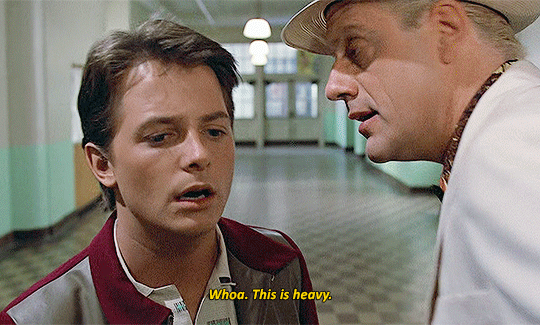Pizza or tacos?
One way to determine whether something is a good idea or not is to consider the pros and cons. If you have enough time, you might divide a piece of paper in half, then list all the good things on the left hand side, and all the bad things on the right.
If you have even more time and a little bit of knowledge, you can do a SWOT analysis where you outline not only the Strengths and Weaknesses of an idea, but also specific Opportunities and Threats an idea might present. There are plenty of digital tools, too, designed for this sort of analytical deep dive.
Those tools are valuable because making a tough decision like this requires mental focus, and your poor brain can only hold so much information in there at once.
The tools that we’ve been using for the longest amount of time are the ones attached to our body, and that certainly includes our hands. Hands can help a great deal with the sort of problem I’m describing, where you have a lot of information in your brain and need somewhere to put it for a moment… but maybe you don’t want to use an external productivity tool or a SWOT analysis to decide what to have for dinner.
If this sort of cognitive offloading sounds like so much hand-waving to you, read this next—it’ll help clear up some of the misconception surrounding this phenomenon:
Suffice it to say: gestures really do work to reduce the amount of work your brain is doing, and our phrase “on the one hand…” tells a story about how this happens.
If a person has two physical objects they’re trying to compare, they’ll almost certainly end up side by side, each in one hand of the person doing the comparing. This allows you to feel the weight of each object as it relates to the other, so even if you don’t know the precise weight of either, you can certainly say which object is heavier (or whether they’re the same weight).
On the one hand, a stone feels light. On the other hand, the stone feels very heavy.
This idea is so old that it’s baked right into our very DNA. We can compare relative sizes of things without ever being shown how, which isn’t something unique to humans—but it’s not something every species possesses, either.
We can hack this ancient tech that’s hardwired into us, making it useful beyond physical comparisons. Our imagination can make this skill vastly more useful. Because we’re so good at comparing things this way, we pretend that we’re comparing the physical weight of two things against one another.
But we’re not measuring physical weight at all. We’re measuring the merits of one idea against another, using the human superpower of metaphor to use an idea from one area to solve a problem in another area.
We weigh one idea against another as though we’re comparing physical properties.
It doesn’t matter to us whether the tacos or the pizza actually weigh more, but rather we are weighing their merits against one another. Quantity might be one deciding factor, but so might nutritional content or taste. So might price, or how far it’ll be before the tacos get here, and so on.
The scales of justice use this metaphor to mimic what our hands have been doing for tens of thousands of years, weighing one side of an argument against another:
You don’t need any external tools like scales to do some of the thinking with your hands, though.
Do you use the phrase “on the one hand”? Do you ever think about the physical weight of a side in an argument? Are your hands going up and down right now as you decide whether to leave a comment?








It doesn't always have to be this way. You can always just say "the hell with it" and take both options, and make everyone happy.
I answer questions on Quora, and one of the worst things about it is that whatever drunken idiot is running the question manufacturing machine keeps sending me by e-mail questions I don't want to answer or can't answer. Many of these fall into this either/or category: "Which show is better- x or y?" "If so and so from this show and such and such from this show were to fight, who would win?" And so on. This is not the correct way to analyze this stuff- it has to be done by gradual exposure and understanding what the show is trying to achieve in order to see if it has obtained that objective per installment. I'm not the only one who feels like that; some of the people who used to be part of it have left and the ones who remain use the questions to bitch about how bad the site was compared to how it USED to be, because it has gone to seed. All I do now is find questions to answer, answer them and wait to see if other people like the answer.
I do understand that there are many occasions and reasons where you must choose between two options, but you can choose to treat the options with equal merit in certain contexts.
Got it! The next time I want to decide on a menu item at a restaurant, I'll just walk into their kitchen and grab a bunch of food into my hands.
I feel like I'm extracting the wrong lesson here, but it's already too late. I'm off!